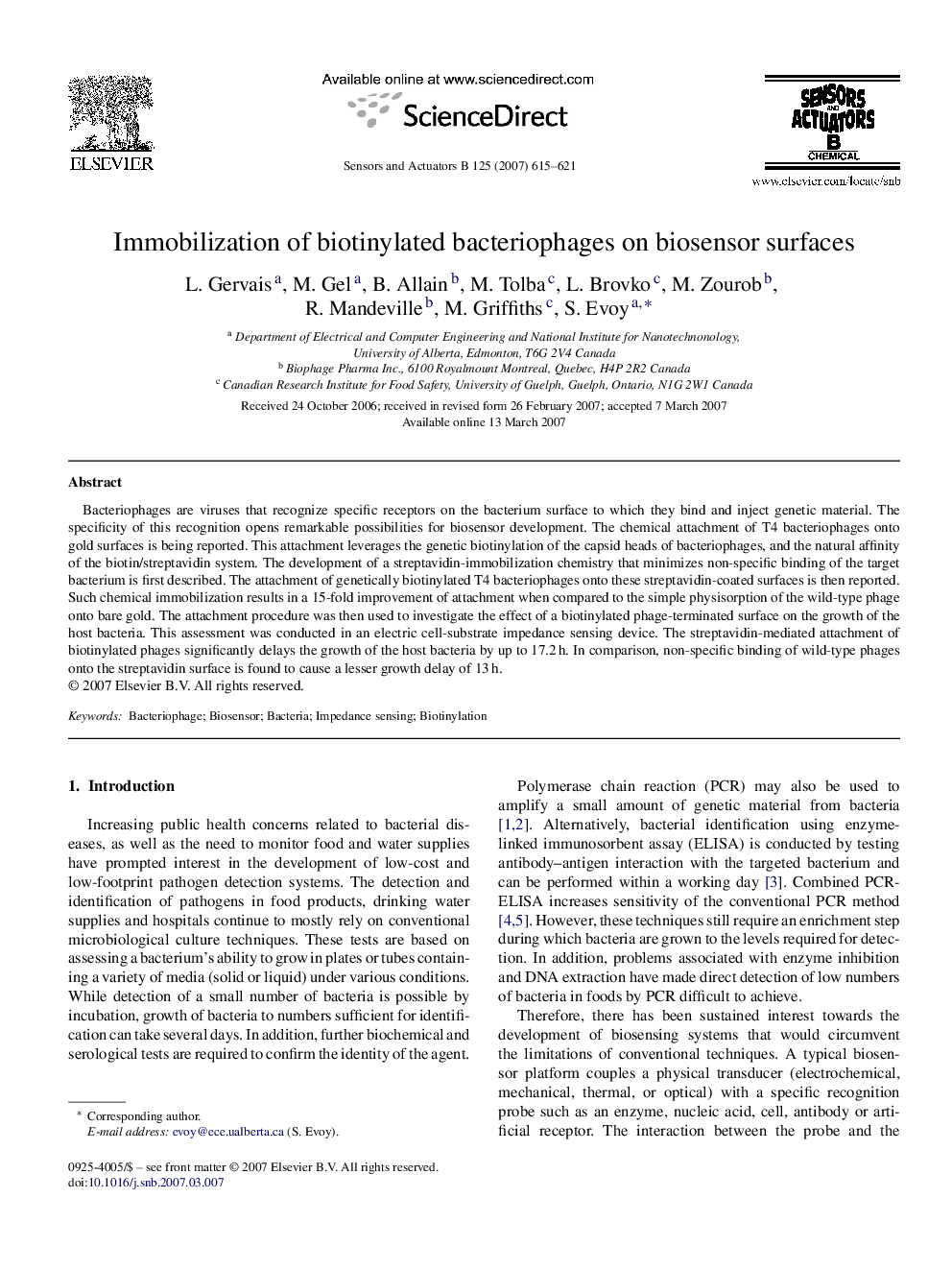| کد مقاله | کد نشریه | سال انتشار | مقاله انگلیسی | نسخه تمام متن |
|---|---|---|---|---|
| 746849 | 894480 | 2007 | 7 صفحه PDF | دانلود رایگان |

Bacteriophages are viruses that recognize specific receptors on the bacterium surface to which they bind and inject genetic material. The specificity of this recognition opens remarkable possibilities for biosensor development. The chemical attachment of T4 bacteriophages onto gold surfaces is being reported. This attachment leverages the genetic biotinylation of the capsid heads of bacteriophages, and the natural affinity of the biotin/streptavidin system. The development of a streptavidin-immobilization chemistry that minimizes non-specific binding of the target bacterium is first described. The attachment of genetically biotinylated T4 bacteriophages onto these streptavidin-coated surfaces is then reported. Such chemical immobilization results in a 15-fold improvement of attachment when compared to the simple physisorption of the wild-type phage onto bare gold. The attachment procedure was then used to investigate the effect of a biotinylated phage-terminated surface on the growth of the host bacteria. This assessment was conducted in an electric cell-substrate impedance sensing device. The streptavidin-mediated attachment of biotinylated phages significantly delays the growth of the host bacteria by up to 17.2 h. In comparison, non-specific binding of wild-type phages onto the streptavidin surface is found to cause a lesser growth delay of 13 h.
Journal: Sensors and Actuators B: Chemical - Volume 125, Issue 2, 8 August 2007, Pages 615–621